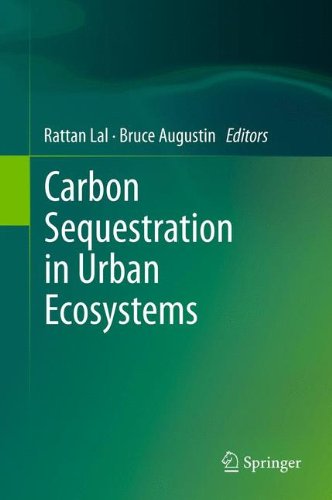

Most ebook files are in PDF format, so you can easily read them using various software such as Foxit Reader or directly on the Google Chrome browser.
Some ebook files are released by publishers in other formats such as .awz, .mobi, .epub, .fb2, etc. You may need to install specific software to read these formats on mobile/PC, such as Calibre.
Please read the tutorial at this link: https://ebookbell.com/faq
We offer FREE conversion to the popular formats you request; however, this may take some time. Therefore, right after payment, please email us, and we will try to provide the service as quickly as possible.
For some exceptional file formats or broken links (if any), please refrain from opening any disputes. Instead, email us first, and we will try to assist within a maximum of 6 hours.
EbookBell Team

5.0
40 reviewsUrbanization drastically alters the ecosystems structure and functions, disrupts cycling of C and other elements along with water. It alters the energy balance and influences climate at local, regional and global scales. In 2008, urban population exceeded the rural population. In 2050, 70% of the world population will live in urban centers. The number of megacities (10 million inhabitants) increased from three in 1975 to 19 in 2007, and is projected to be 27 in 2025. Rapid urbanization is altering the ecosystem C budget. Yet, urban ecosystems have a large C sink capacity in soils and biota. Judicious planning and effective management can enhance C pool in urban ecosystems, and off-set some of the anthropogenic emissions. Principal components with regards to C sequestration include home lawns and turfs, urban forests, green roofs, park and recreational/sports facilities and urban agriculture.